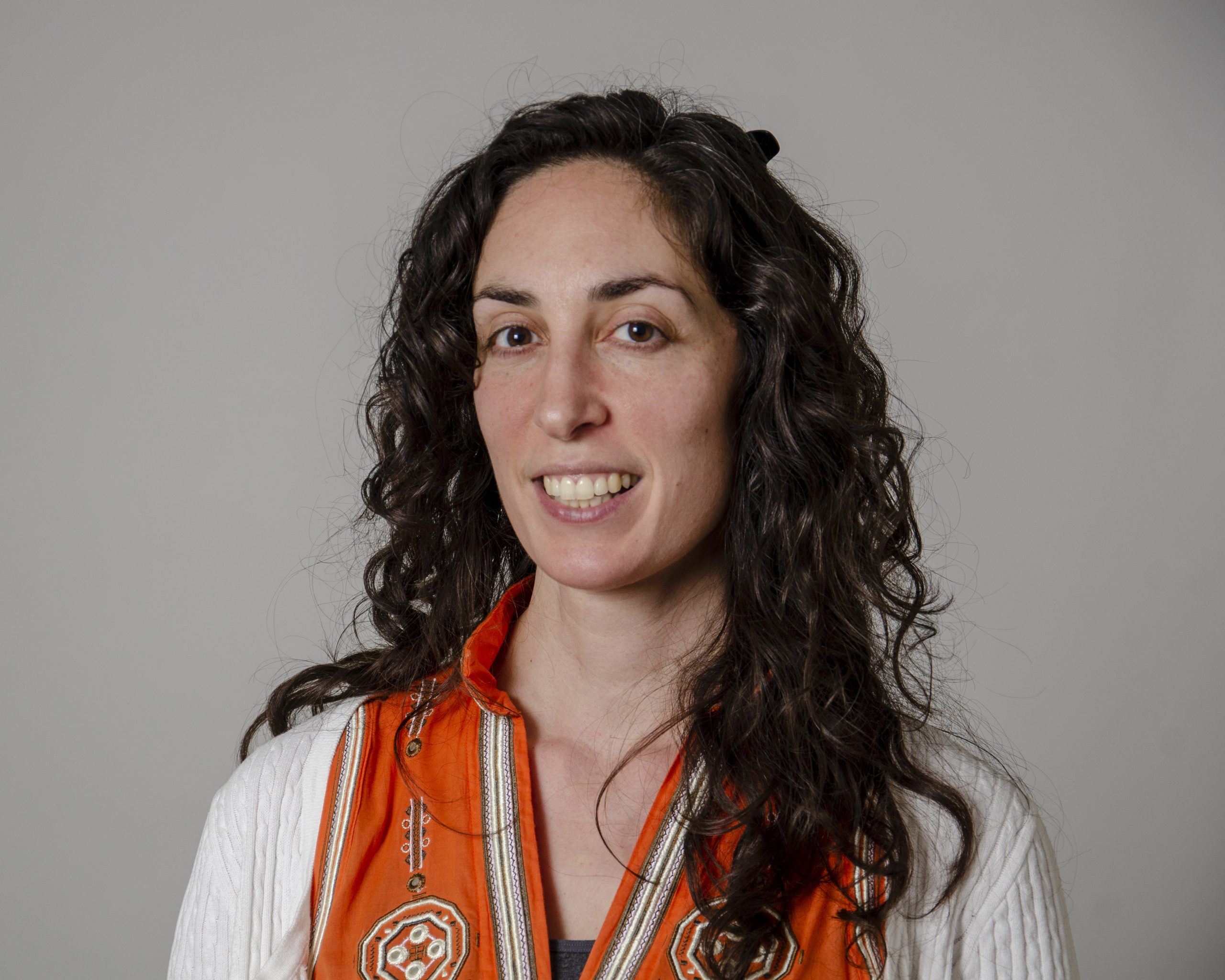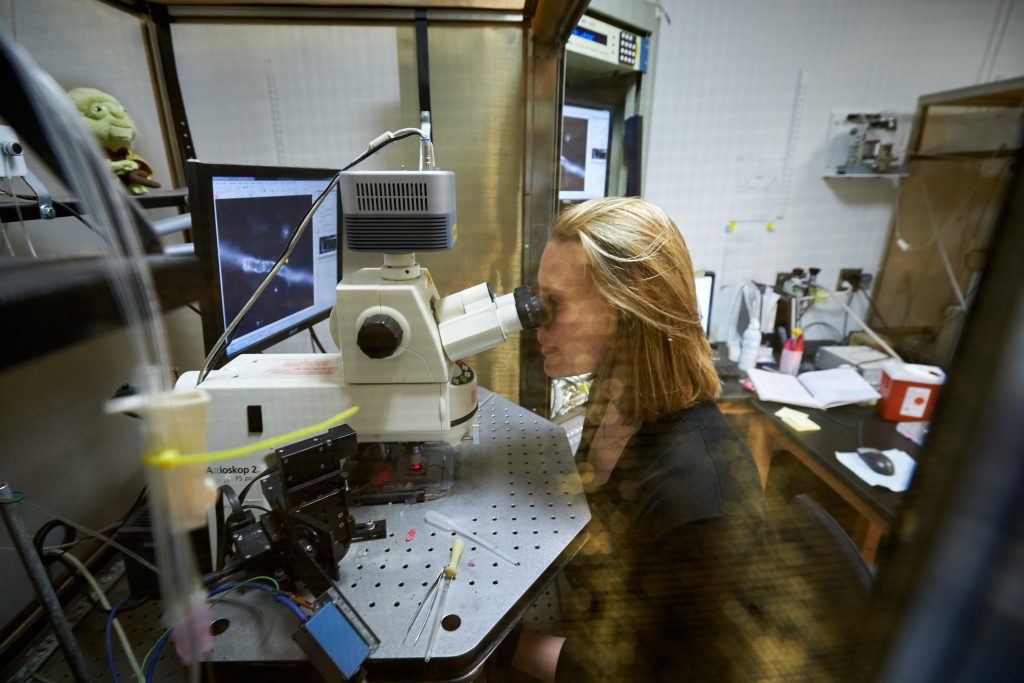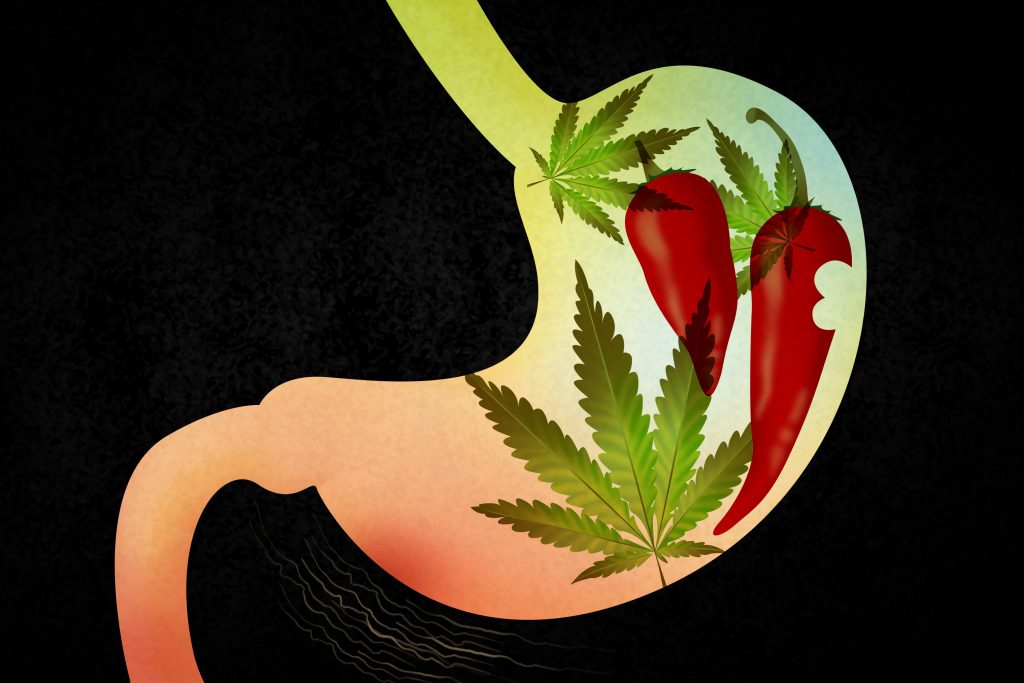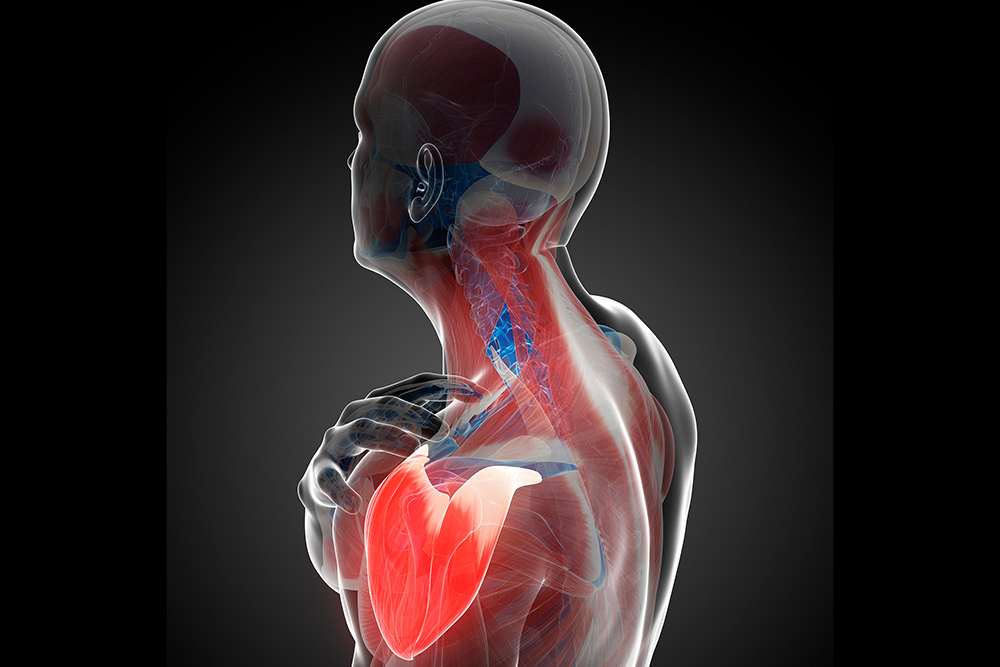
Writer
Kim Krieger
Kim Krieger has covered politics from Capitol Hill and energy commodities from the floor of the New York Mercantile Exchange. Her stories have exposed fraud in the California power markets and mathematical malfeasance in physics. And she knows what really goes on in the National Radio Quiet Zone. These days, Kim tells clear, compelling stories of the research at UConn. Her work connects Connecticut citizens and the press with the vast resources of their flagship public university. When not at UConn, she can be found kayaking among the beautiful Norwalk islands, digging in her garden, or occasionally enjoying the silence in the National Radio Quiet Zone.
Author Archive
Thermal Funkiness: Explaining the Unexpected
After just one semester of college physics, undergraduate Connor Occhialini performed theoretical calculations that explain why scandium fluoride shrinks when it gets warm. His work has now been published in an elite physics journal.
August 9, 2017 | Kim Krieger
Don’t Trust Me? Let’s Dance
New research quantifying the effects of synchronized movement is designed to better understand how it can drive social behavior and attitudes.
July 10, 2017 | Kim Krieger
The Stars Align, and Astronomers Sharpen Hubble’s Gaze
By applying computational analysis to images from a gravitational lens, astronomers have been able to see clear pictures of the distant universe.
July 6, 2017 | Kim Krieger
Genes Predict Cancer Patient’s Pain – or Lack of It
UConn researchers report genetic clues that point to those individuals likely to be most vulnerable to post-treatment pain.
June 19, 2017 | Kim Krieger
Color Me Blue: Mapping Teen Suicides to Help Prevent Them
UConn researchers collected data on suicide attempt rates in towns across Connecticut in hopes of promoting prevention strategies.
June 6, 2017 | Kim Krieger
The Veins in Your Brain Don’t All Act the Same
UConn researchers, including undergraduate students, have discovered that the blood vessels in one part of the brain act differently than elsewhere in the body, in order to keep us breathing.
May 9, 2017 | Kim Krieger
Melanoma’s Signature
On Melanoma Monday, UConn Health dermatologist Sam Dadras discusses his research, which found a molecular signal that could distinguish which skin cancers need more aggressive treatment.
May 1, 2017 | Kim Krieger
Chili Pepper and Marijuana Calm the Gut
UConn Health researchers have found a connection between chili peppers and marijuana that could lead to new therapies for gastrointestinal disease.
April 25, 2017 | Kim Krieger
UConn Astronomer to Glimpse First Galaxies
A UConn professor specializing in the formation of the first galaxies is one of six researchers who will have the first chance to analyze data from four new international telescopes.
April 21, 2017 | Kim Krieger
Stem Cell Fabric Innovation Regrows Rotator Cuffs
A team of researchers from UConn Health has found a way to regenerate rotator cuff tendons after they’re torn, using a nano-textured fabric seeded with stem cells.
April 3, 2017 | Kim Krieger









